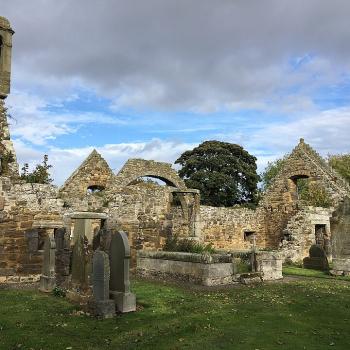Here the Christian tradition must acknowledge that the New Testament is virtually silent about how the world should be governed by the civil authorities. (Note: while Old Testament Israel's theocracy is relevant, the New Testament does not teach that it is a model for the church.)
For obvious reasons, because New Testament believers lived under Roman rule they were not commanded to engage in political activity. Nowhere in the New Testament are individual believers commanded to tell people outside the church how to behave. In contrast, we are told to lead quiet lives, and not disturb the extant order. Paul commands the church to "submit" (Romans 13.1).
As a minister of God's word, I am therefore limited in how far I can say, "Thus sayeth the Lord." I can only bind the consciences of my congregation so far as God's Word has spoken.
There is a difference between saying "You shall not murder," and saying "You shall pass a law that says you shall not murder." The former implies the latter is a just act. But the latter act has different force altogether; it commands an act of governance, the authority for which the church lacks in the civil kingdom.
This is a controversial, but crucial, distinction. Let's apply it to the contested area of abortion.
God's law clearly proscribes the taking of life. His word clearly teaches that unborn life is precious and to be protected. This has been a hallmark of Christian social ethics since the early church. Therefore, as a preacher I can unambiguously proclaim from the pulpit that a Christian who aborts their child is committing a heinous sin. God commands his people to preserve and protect life.
But the command to not take a life is not a command to pass a law not to take a life. Nor is it a command to politically agitate or lobby for such a law. Such political activity could be understood to run counter to Paul's command to church to "live quietly and mind your own affairs" (1 Thessalonians 4:11).
How then shall we best love our neighbors outside the church? How shall we preserve and protect those lives that are not directly subject to the moral government of the church?
We have no comparable clarity here. Shall we enact laws against abortion? Christians may, in our wisdom, decide it is best to do so. But neither the Church nor her preachers can say unambiguously that such laws must be enacted. She lacks the authority, and the wisdom, to do so. Perhaps such a law will backfire; perhaps it will lead to more abortions, to more deadly abortions. Perhaps it is politically unwise, though being morally just. If she bases her actions on what God's word teaches, the church must remain agnostic on such questions.
Therefore, the church should be mindful of its members' dual citizenship, and differing degrees of clarity on how God's law shall be applied in different aspects of their lives. God's law is not multifaceted. It is one and simple and true. But our grasp of it, and our application of it to our neighbors in particular times and places, is finite and variable.
Yet while the church is bound and limited in what she may teach, the individual Christian is free. She may engage in politics, may lobby for pro-life causes, may hold civil office. But the church may not compel her to do so.




